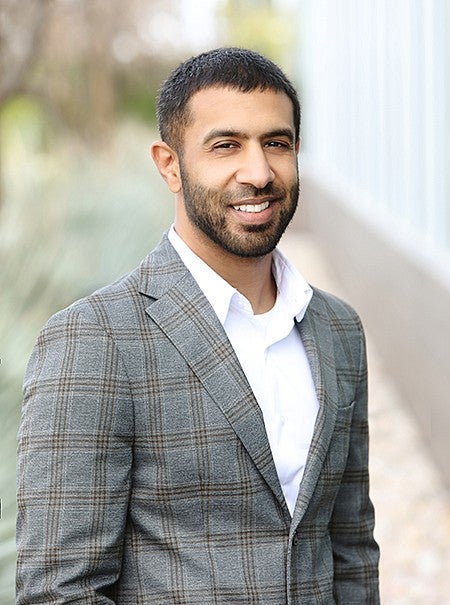
Turning Expertise into Impact: A Journey from Concept to Compassion
Meet Shaji S. Haq, PhD, BCBA-D, NCSP, '16, School Psychology doctoral program through our Alumni Spotlight series.
“In the end, it’s not just about building programs or publishing research, it’s about making a real difference in people’s lives. That’s what drives me every day.” – Shaji S. Haq
Dr. Shaji S. Haq, Director of Severe Behavior Services at Easterseals Southern California, exemplifies the transformative potential of combining rigorous academic training with a deep commitment to compassionate care. A 2016 graduate of the University of Oregon’s School Psychology doctoral program, Haq credits his time at the College of Education with shaping both his clinical expertise and his broader professional philosophy. “The strong emphasis on a conceptual understanding of behavior paired with applied clinical experiences was foundational,” Haq explained. “It gave me the tools to not only understand behavior but to apply that knowledge in real-world settings where it truly matters.”
This foundation has proven critical in Haq’s current role, where he leads efforts to address severe behavioral challenges in individuals with profound autism. One of his most significant accomplishments is his role in the development of the Center of Excellence at Easterseals’ Irvine headquarters. A significant portion of the facility will be designed to provide specialized Applied Behavior Analysis (ABA) assessment and treatment for individuals exhibiting severe problem behavior. “Training in this area of practice is extremely limited,” Haq noted. “I feel proud that the career path I chose and the expertise I cultivated were major reasons for this build. It created opportunities for families significantly impacted to receive these necessary services.”
Haq’s approach to clinical work is deeply informed by a lesson he learned during graduate school. In a supervision meeting with his advisor, Dr. Tiffany Kodak, he was asked to explain a graph and intervention in lay terms. Despite his extensive training in scientific methodology, the request caught him off guard. “I stuttered and fumbled,” he recalled. “That moment taught me that our work is not just about science or research, it’s about the individuals and families we serve. We must never forget that.”
This emphasis on accessibility and empathy continues to guide Haq’s leadership. He regularly draws on skills learned in courses such as Single-Subject Research Methods I, co-taught by Dr. Robert Horner and Dr. Wendy Machalicek. “I use the skills learned in that class every single day,” he said. “They guide clinicians to use single-case research methodology and make data-based decisions.”
Reflecting on his time at the University of Oregon, Haq emphasized the importance of choosing a high-quality graduate program. “There are many cheaper, more feasible options for graduate school,” he said. “But a quality program is priceless. It shapes your competence and opens doors to impactful opportunities.”
His advice to current students is grounded in his own experience navigating the demands of graduate education. “Don’t take the easy route,” he advised. “Dedicate yourself to the experiences being offered and be open to the insights shared by your professors and mentors. The challenges are short-lived, but the growth is lasting.”
Haq’s career trajectory was further shaped by his pursuit of an APPIC-approved internship, which led to niche experiences and ultimately his current leadership role. Looking ahead, he remains committed to refining service models, expanding infrastructure, and contributing to the field of ABA as both a practitioner and scholar. “I hope to continue contributing to the field of ABA through research and training for the next generation of clinicians,” he said. “There’s still so much work to be done.”
When asked about his favorite places on campus, Haq fondly recalled the HEDCO building and the collaborative meeting spaces that fostered both academic growth and personal connection. “The meeting space downstairs was a hub for collaboration, learning, and connection,” he said. “It’s where we worked on projects, assignments, or just met friends to chat before class.”
As he reflects on his journey, Haq offers a final thought that encapsulates his philosophy and purpose: “In the end, it’s not just about building programs or publishing research, it’s about making a real difference in people’s lives. That’s what drives me every day.”
Dr. Shaji Haq’s story is a testament to the enduring value of a rigorous education, a commitment to service, and the belief that behavioral science, when guided by compassion, can change lives.
